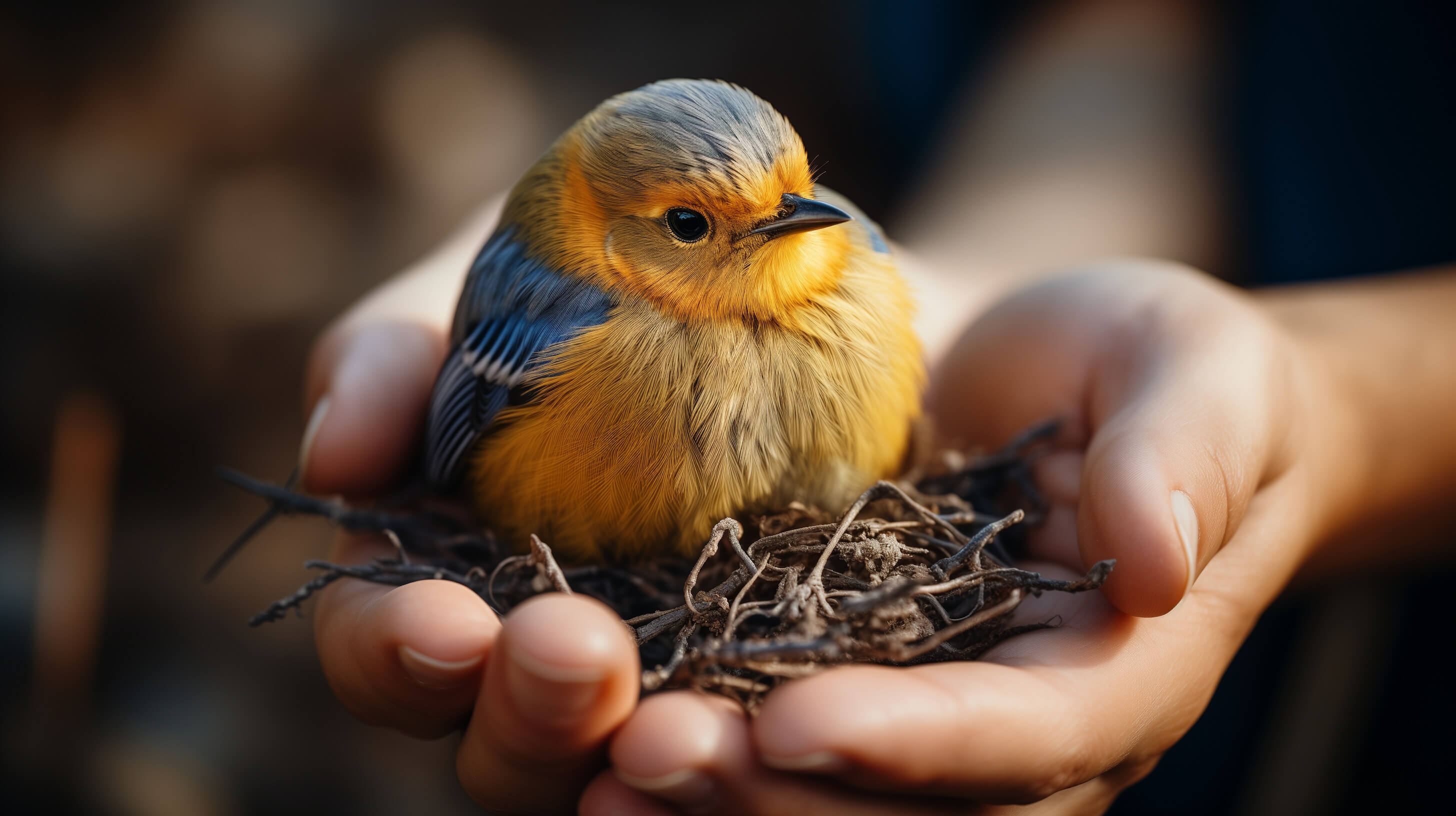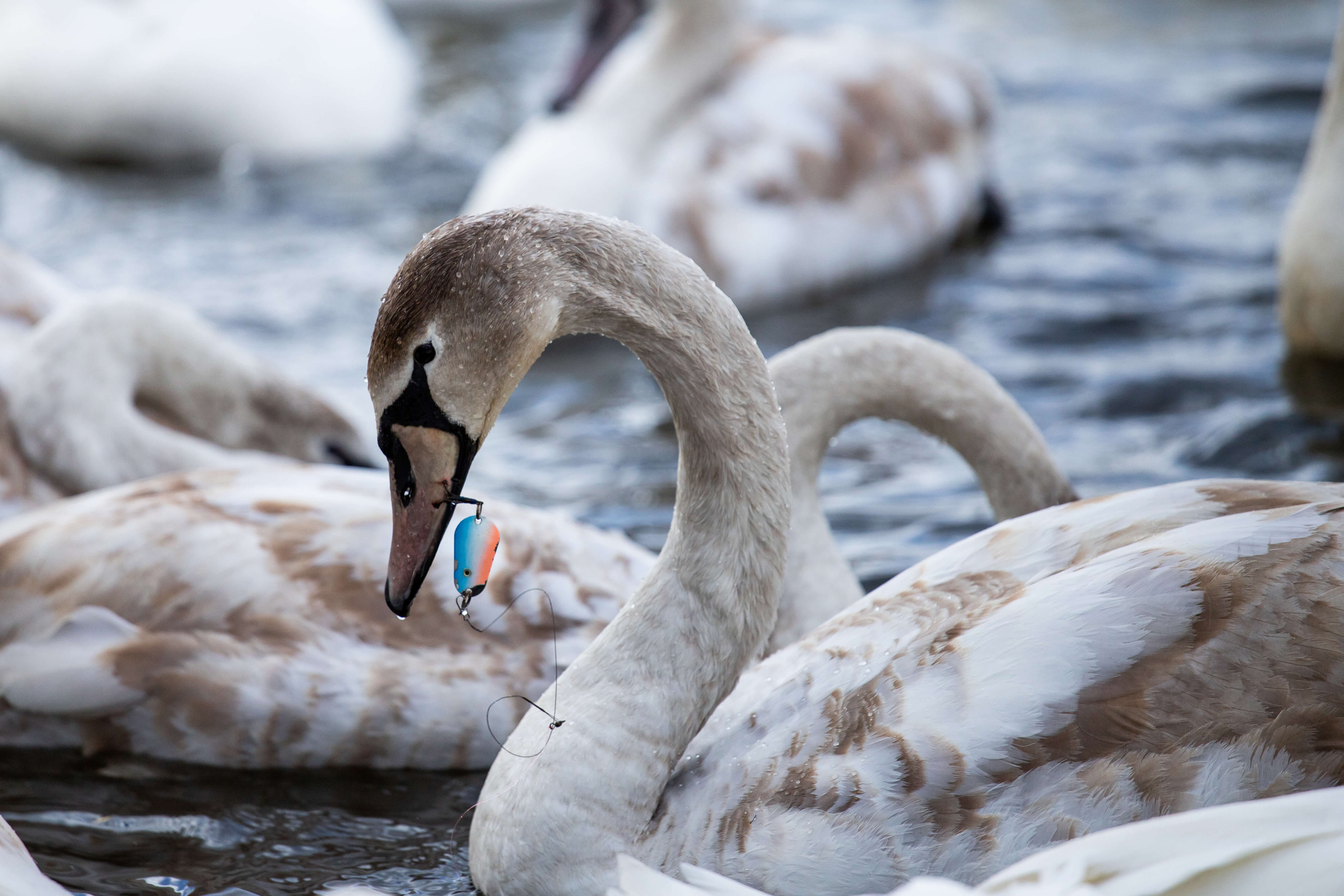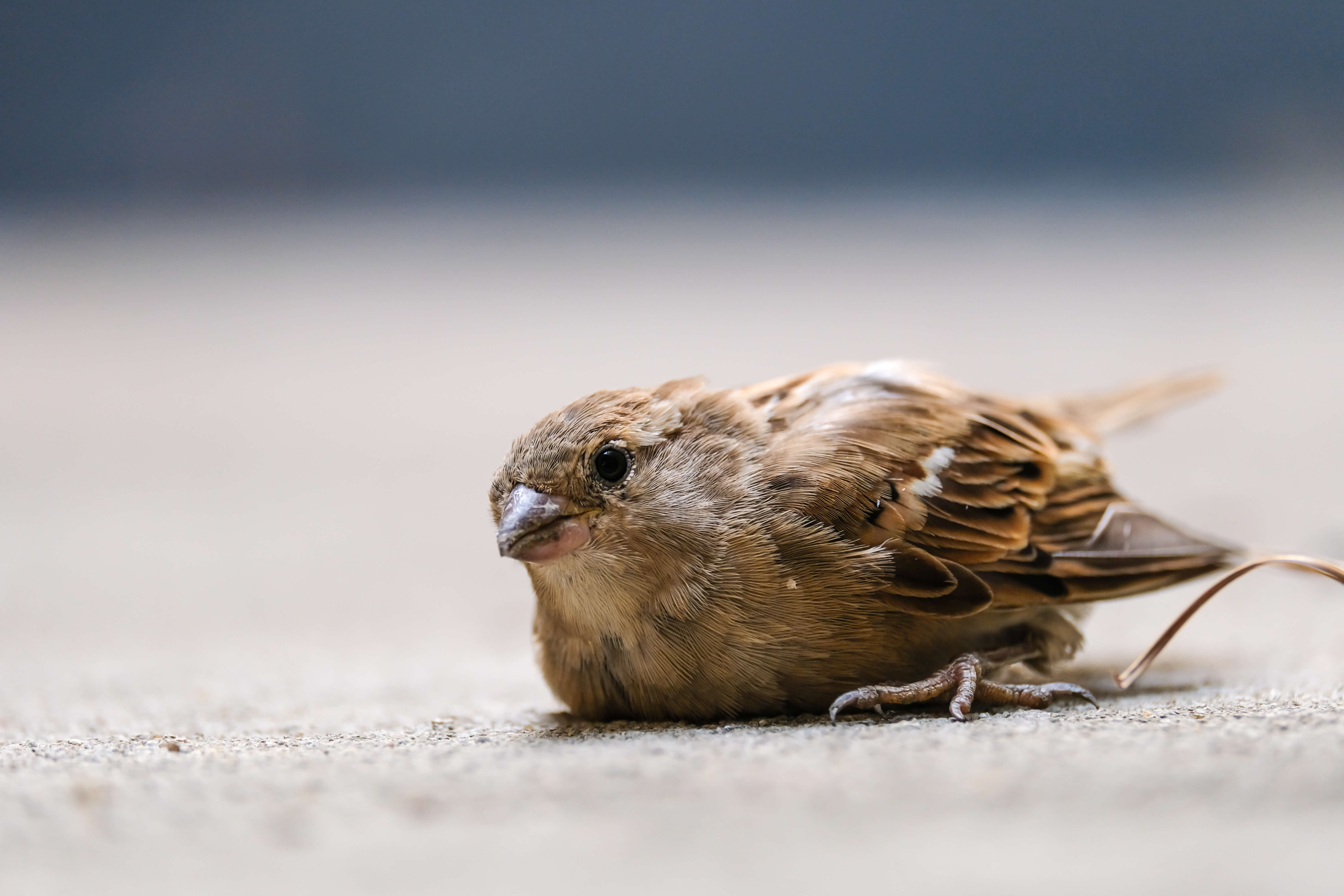I've found an injured bird.
What shall I do?
CALL US 07734 047357
We are committed to providing advice and assistance in most situations and will do our utmost to help you. Please bear in mind that our dedicated team consists entirely of volunteers, so your patience is appreciated.
IMPORTANT: When you encounter an injured or distressed bird, it’s important to carefully assess the situation before taking action.
Start by observing the bird from a safe distance to avoid causing additional stress. Take note of its behaviour and environment:
- Has the bird been involved in a collision? Birds that have flown into windows or vehicles may appear stunned or disoriented. Check for any obvious injuries such as broken wings or legs, and observe whether the bird is struggling to regain its bearings.
- Is the bird under attack by other animals? Predators such as cats or larger birds can cause serious harm. If the bird is being attacked, it may be frightened or injured. Observe whether it’s attempting to escape or if it’s incapacitated.
- Does the bird show signs of illness? Look for symptoms such as gasping for breath, lethargy, drooping wings, or an inability to stand or fly. Illness can manifest in various ways, including a lack of response to stimuli or unusual behaviour.
- Are there visible signs of injury or disease? Check for bleeding, signs of mange or mites, or other physical abnormalities. Open wounds, blood, or feather loss can indicate serious issues that require immediate attention.
- Can the bird walk or fly? If the bird is grounded and unable to move or take flight, it may need urgent care. Birds that are hopping or dragging a wing may have sustained an injury that requires professional intervention.
Once you’ve gathered as much information as possible, contact Wildlife in Need at 07734 047357
TAP HERE TO CALL US NOW
Please provide our volunteers with detailed observations to help them assess the situation more effectively. One of our team members will respond as soon as they can to offer guidance or arrange for assistance.
Please be aware that our calls and emails are not monitored overnight, so urgent cases may require immediate action to ensure the safety of the bird.
What to expect
After you’ve made contact with us, we will carefully assess the situation and usually recommend one of the following next steps, depending on the specific circumstances:
-
Take the Bird to a Local Vet: Based on the information you provide, we may advise you to take the bird directly to a local veterinarian. Please ensure you call the vet in advance to inform them of your arrival and the situation. The vet will conduct their own diagnosis and determine whether the bird can be treated or, in some cases, may need to be humanely euthanised.
For emergencies, you can visit the Medivet Emergency Vet located at 101 North Rd, Poole BH14 0LT. They can be reached at 01202 383843 or through their website at https://www.medivet.co.uk/24-hour-emergency-vet/24-hour-poole -
Bring the Bird to Us: If the bird is not critically injured and has a chance of recovery, we may ask you to bring it to our centre. It is crucial that you transport the bird in a secure box to prevent further stress or injury. We will provide you with a contact number and the necessary details for delivery.
Please call ahead before arriving, as we are not open 24/7 and cannot accommodate unscheduled visits.
TAP HERE TO CALL US NOW - Hold the Bird Temporarily: In certain situations, we might request that you care for the bird for a few hours or even overnight. This could be necessary if our volunteers are handling other emergencies or if it’s after hours. We will guide you on how to keep the bird safe and comfortable until we can attend to it.
- Arrange for Collection: In some cases, we may send one of our designated drivers to collect the bird from you. We may also arrange to meet you at a convenient location, such as a nearby car park, to facilitate a smooth transfer. This option is often used when the bird requires immediate attention, and you are unable to transport it yourself.
Looking after an injured bird
When handling injured birds, it's important to approach the situation with great care, as they are incredibly fragile creatures.
Securing the Bird:- Choose the Right Box: Select a cardboard box that is just large enough for the bird. It should be big enough to allow the bird to sit comfortably but small enough to prevent it from flying or injuring itself. A shoe box with air holes is ideal for smaller birds, while a cat carrier works well for larger birds or small animals.
- Covering the Bird: Using a towel, sheet, or T-shirt, gently but quickly place the cloth over the bird. Ensure the head is covered, as this will help to calm it down and reduce stress.
- Transferring to the Box: Once the bird is covered, carefully scoop it up and place it inside the prepared box. Gently loosen the towel so that the bird is no longer restrained, but still comfortably enclosed.
- Securing the Box: Close the box securely and place it in a quiet, warm, and dark location. Avoid handling or checking on the bird, as this can increase its stress levels.
- Small Birds and Nestlings: These birds require extra warmth. Surround them with a soft towel or kitchen paper, and place a hot water bottle (ensuring it is not too hot) or a hand warmer beneath the towel to provide gentle warmth.
- Do Not Feed: Do NOT feed or give water to the bird unless you have been specifically instructed to do so by Wildlife in Need. Incorrect feeding can cause further harm.
- If a bird has been attacked by a cat It is crucial to get it to a vet or wildlife professional as quickly as possible for antibiotic treatment. Time is of the essence in these situations.
- Contact us for advice: When dealing with larger birds, such as those with sharp beaks or talons. Each situation is unique, and many larger wild birds, especially geese and swans, can be dangerous. Our team can guide you through the appropriate steps for handling and care. TAP HERE TO CALL US NOW
- If you find a bird out of a nest, look at this video for advice.
- If you are transporting the bird or animal to us, please ensure the box or cage is secured very firmly, as injured birds can be further harmed by movement during the car journey. Depending on the type of bird, we have different drop-off locations, and our volunteer will guide you on where to go.
-
Keep the bird safely contained overnight in a dark, warm, and quiet area, away from children and other animals. It is important not to feed the bird, as they can easily choke.
In the morning, contact Wildlife in Need (available 7 days a week) for further assistance.
If the bird appears to be in critical distress, please contact Poole Emergency Vet on 01202 382843, or reach out to the RSPCA wildlife emergency hotline at 0300 1234 999 (national) or the East Dorset branch at 01202 890415 (please note, this is not a 24-hour service)
-
We understand that caring for a sick or injured animal can be distressing. However, we’ve recently encountered instances where callers have been rude to our volunteers.
Please remember that our volunteers work long hours, often face difficult decisions, and do so without compensation. There are times when we receive a high volume of calls, and it may take a few hours to address your specific case.
We would really appreciate your patience and understanding.

Consider making a small donation today to support our vital work and help cover our running costs. Your generosity makes a huge difference.
Donate Today


